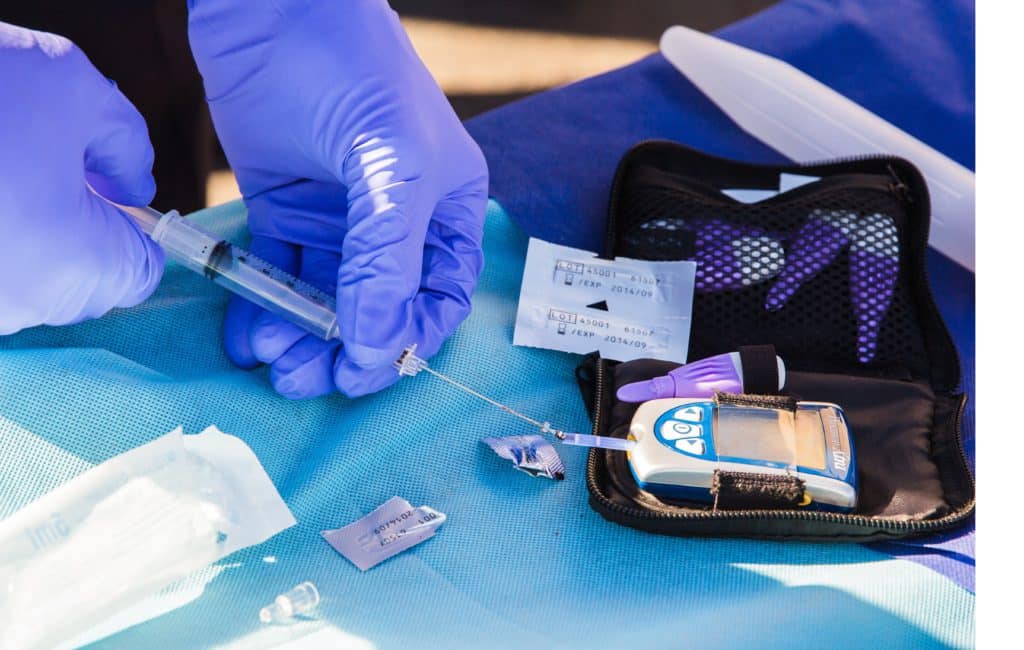COVID-19 is a new disease and there is limited information regarding risk factors for severe disease. Based on currently available information and clinical expertise, older adults and people of any age who have serious underlying medical conditions might be at higher risk for severe illness from COVID-19.
A new study of 7,162 people who tested positive for COVID-19 shows that those with any chronic health problems — such as heart disease, diabetes, lung or kidney disease, or cancer — make up about 1/3 of the confirmed cases. But they account for more than 2/3 of the hospitalizations
Knowing more about who is at higher risk can help us protect them and ourselves. Below is some important information about who is at higher risk for serious illness from COVID-19, according to the Centers for Disease Control (CDC) and Johns Hopkins Medicine.
People aged 65 years and older

Eight out of 10 deaths in the U.S. from the new coronavirus have been in people 65 and older. An estimated 6% to 29% of people 85 and older who get COVID-19 will require intensive care. Here are some reasons why:
- Older adults are more likely to have long-term health problems that can put them at risk.
- People’s immune systems tend to weaken with age, making it more difficult for older people to fight off infections.
- Lung tissue becomes less elastic over time, making respiratory diseases like COVID-19 a concern for older people.
- Inflammation in older people can be more intense, potentially causing organ damage.
People with chronic lung disease or moderate to severe asthma
Chronic airway and lung diseases such as chronic obstructive pulmonary disease (or COPD, such as emphysema), asthma, pulmonary fibrosis and interstitial lung disease can set the stage for a more severe infection with coronavirus because of scarring, inflammation or lung damage.
It’s very important for people with these conditions to work with their doctors and ensure they have adequate supplies of maintenance and rescue medications on hand.
People who have serious heart conditions

Although COVID-19 most often affects the airway and lungs, these organs work together with the heart to drive oxygen to the body’s tissues. When the lungs are overtaxed due to illness, the heart must work harder, which creates challenges for people who are already living with heart disease and can lead to a worsening of COVID-19 symptoms.
The American Heart Association notes that viral illnesses similar to COVID-19 can raise the risk of a heart attack in people with a buildup of plaque in their blood vessels. Research shows that viral illness can make it more likely that a piece of the plaque lining the vessels could break off and block blood flow to the heart.
People who are immunocompromised
Many conditions can cause a person to be immunocompromised, including cancer treatment, smoking, bone marrow or organ transplantation, immune deficiencies, poorly controlled HIV or AIDS, and prolonged use of corticosteroids and other immune weakening medications.
People with a weakened immune system have reduced ability to fight infectious diseases, including viruses like COVID-19. Knowledge is limited about the virus that causes COVID-19, but based on similar viruses, there is concern that immunocompromised patients may remain infectious for longer than other COVID-19 patients.
People with severe obesity
Severe obesity, defined as a body mass index (BMI) of 40 or above, puts people at higher risk for complications from COVID-19.
Severe obesity increases the risk of a serious breathing problem called acute respiratory distress syndrome (ARDS), which is a major complication of COVID-19 and can cause difficulties with a doctor’s ability to provide respiratory support for seriously ill patients. People living with severe obesity can have multiple serious chronic diseases and underlying health conditions that can increase the risk of severe illness from COVID-19.
People with diabetes
Diabetes, including type 1, type 2, or gestational, may put people at higher risk of severe illness from COVID-19. People with diabetes whose blood sugar levels are often higher than their target are more likely to have diabetes-related health problems.

Poorly controlled blood sugar can make viral diseases, including COVID-19, more dangerous, possibly because higher blood sugar can create an environment where viruses are likely to thrive.
In addition, diabetes increases inflammation and weakens the immune system, making it harder for people living with the condition to fight off disease in general.
People with chronic kidney disease undergoing dialysis
People with kidney disease are at higher risk for more severe illness.
People on dialysis can have weaker immune systems, making it harder to fight infections. However, it is important to know that kidney patients need to continue with their regularly scheduled dialysis treatments and to take necessary precautions as recommended by their healthcare team.
People with a kidney transplant need to take anti-rejection medicines (also known as immunosuppressive medicines). These medicines work by keeping the immune system less active, which can make it harder to fight infections.
People with liver disease
Severe illness caused by COVID-19 and the medications used to treat some severe consequences of COVID-19 can cause strain on the liver, particularly for those with underlying liver problems. People living with serious liver disease can have a weakened immune system, leaving the body less able to fight COVID-19.
What should people at higher risk of serious illness from COVID-19 do to protect themselves?
If you are at higher risk of getting extremely sick from COVID-19, you should:
- Stock up on supplies
- Take everyday precautions to keep space between yourself and others
- When you go out in public, keep away from others who are sick
- Limit close contact and wash your hands often
- Avoid crowds, cruise travel, and non-essential travel
Learn more about how to protect yourself and others here.
For information on how your workplace can be tested for the COVID-19 active virus and/or antibodies, contact us at [email protected] or 800-269-0502.
